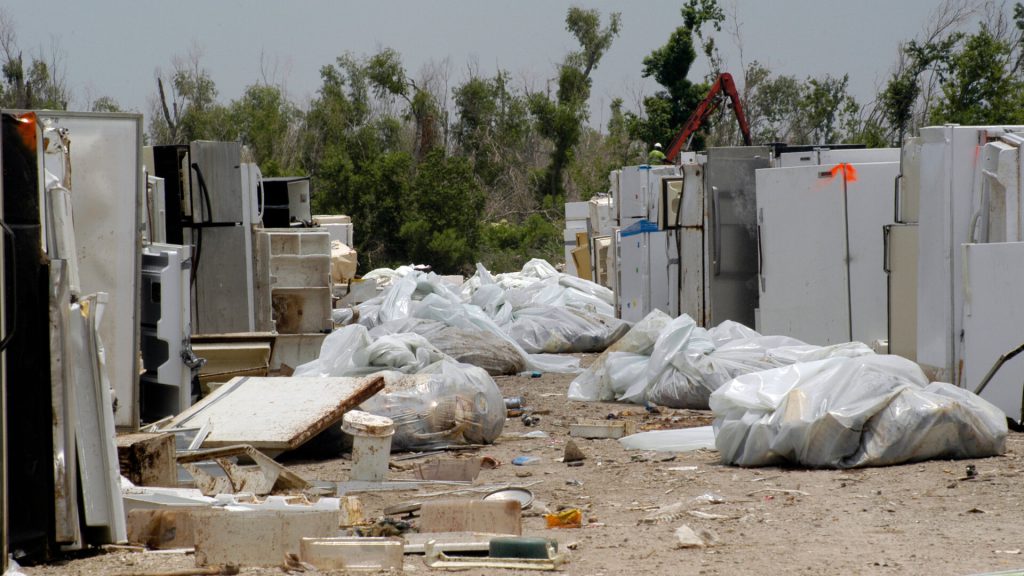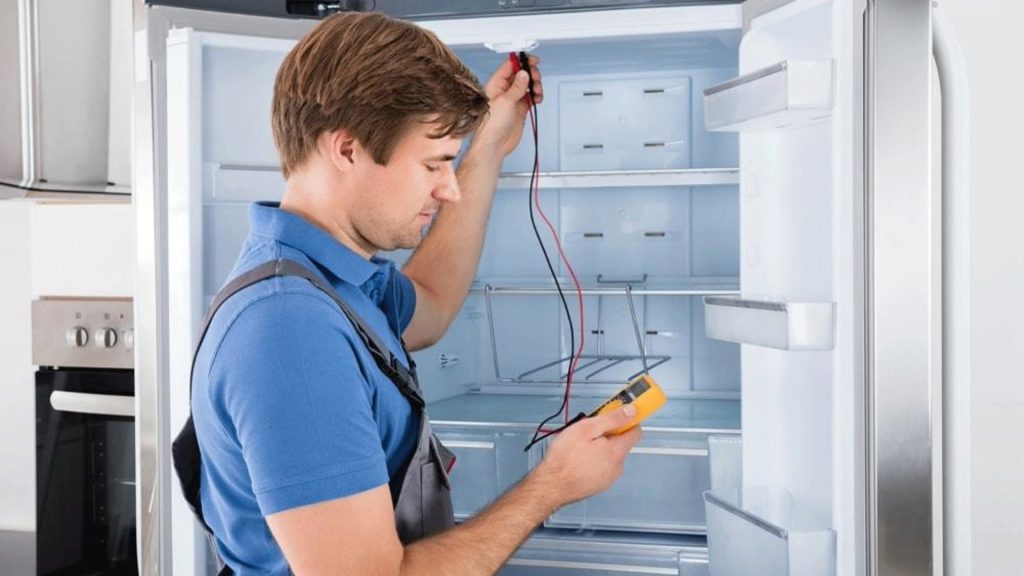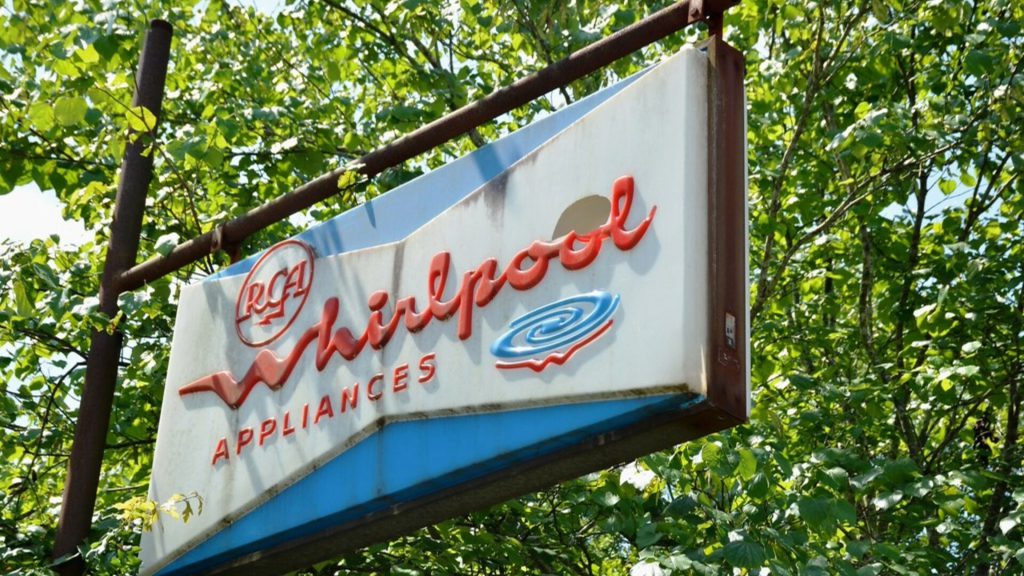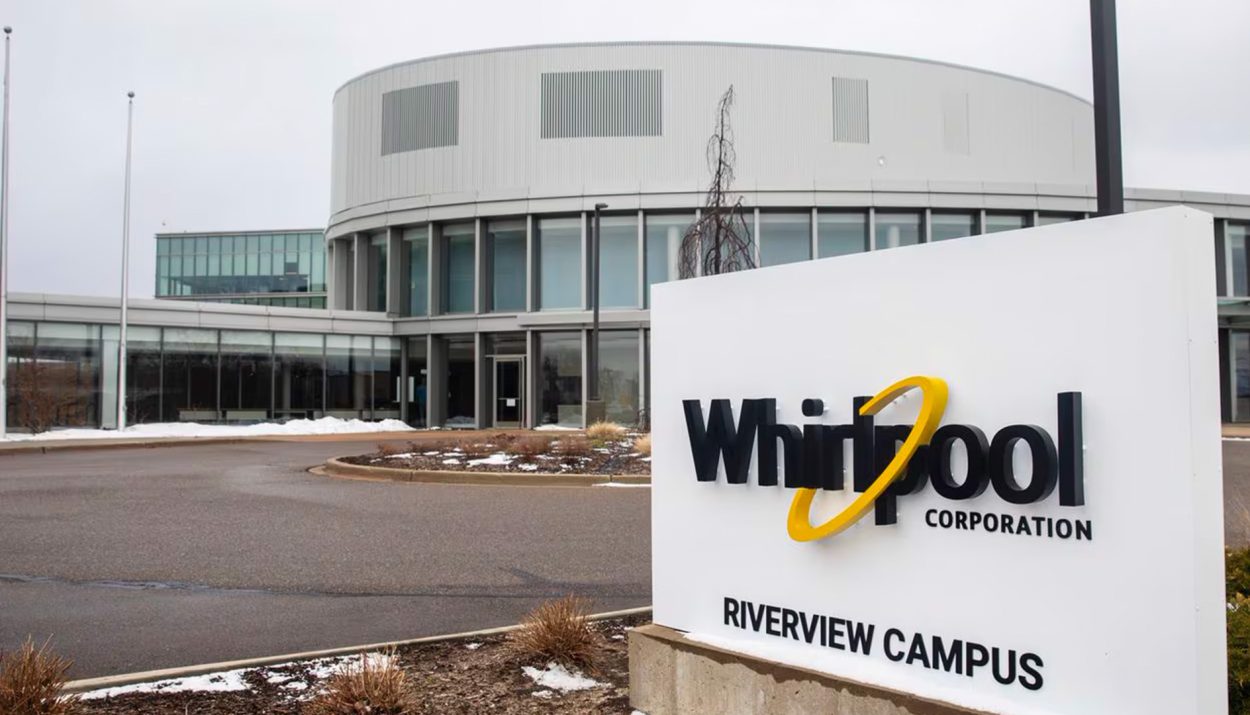In a shocking turn of events, appliance giant Whirlpool finds itself at the center of a class action lawsuit that alleges the intentional manufacturing and selling of refrigerators with defective wiring. The lawsuit, filed by plaintiffs Stacy Costa, Nathaniel Guerrero, and Missy Robinson, claims that the wires are prone to fraying and breaking, leading to a host of issues for consumers.
Plaintiffs Allege Whirlpool’s Longstanding Awareness of Defective Wiring
The class action lawsuit, filed on behalf of Whirlpool, KitchenAid, and Kenmore refrigerator purchasers, alleges that the defective wiring often becomes apparent within a few years of purchase. Shockingly, complaints on social media suggest Whirlpool’s awareness of the issue spans at least a decade. The plaintiffs argue that these complaints, along with Whirlpool’s communications with repair technicians and service representatives, provide clear evidence of the company’s knowledge of the problem.

The lawsuit further claims that despite this long standing awareness, Whirlpool continued to manufacture and sell refrigerators with defective wiring, leaving countless consumers struggling with malfunctioning appliances. As the case unfolds, it remains to be seen how Whirlpool will respond to these damning allegations and the evidence presented by the plaintiffs.
Defective Wiring Creates Unnecessary Waste and Environmental Strain
Beyond the frustration and inconvenience caused by compromised refrigeration, the frayed wires at the heart of this lawsuit create unnecessary waste and strain on our planet. Shockingly, the alleged defect is irreparable, as replacement doors from the same brands suffer from the same flaw, rendering them useless as a long-term solution.

Consumers seeking repairs face part backlogs stretching months, if available at all, with costs exceeding $1,200. As a result, most consumers are forced to purchase entirely new refrigerators, fueling a wasteful cycle of appliances ending up in landfills prematurely. The environmental consequences are dire, as these discarded refrigerators produce planet-warming methane as they break down over hundreds of years.
The High Costs of Manufacturing Demands and Energy Consumption
The premature replacement of refrigerators due to the alleged defective wiring not only contributes to the growing problem of appliance waste but also drains precious resources and generates excess emissions during the manufacturing process. Refrigerators are notorious for being the most energy-hungry kitchen appliances, and the increased demand for new units only exacerbates this issue.

As consumers are forced to replace their malfunctioning refrigerators years before their expected end of life, the environmental impact multiplies. The production of new refrigerators requires significant amounts of raw materials, energy, and water, all of which contribute to the ever-growing carbon footprint of the appliance industry. This lawsuit brings to light the far-reaching consequences of Whirlpool’s alleged negligence and the urgent need for more sustainable practices in appliance manufacturing.
Class Action Pushes for Corporate Accountability and Sustainability
The class action lawsuit against Whirlpool includes claims of breach of warranty, fraud, misrepresentation, unjust enrichment, and violations of state consumer protection laws in California, Florida, and North Carolina. These claims underscore the growing demand for corporate accountability and sustainability in the face of environmental challenges.

The lawsuit sheds light on the detrimental impacts of planned obsolescence and poor design on our environment, as well as the financial burden placed on consumers who are left with no choice but to replace their malfunctioning appliances prematurely. As the case progresses, it serves as a powerful reminder of the importance of holding corporations responsible for their actions and the need for more eco-conscious practices in the appliance industry.
Consumers Can Push for Change Through Right-to-Repair Laws and Sustainable Choices
While the class action lawsuit against Whirlpool unfolds, individuals can take steps to push for change in the appliance industry. Supporting right-to-repair laws, which would allow consumers to repair their appliances more easily and affordably, is one way to combat the wasteful cycle of premature replacements.

Additionally, consumers can make a difference by maintaining their appliances properly, extending their lifespan, and reducing the need for replacements. When the time comes to purchase a new refrigerator, choosing an Energy Star-certified model can help minimize energy consumption and environmental impact. By making informed and sustainable choices, individuals can contribute to building a greener future and pressuring companies to adopt more eco-conscious practices.
Lawsuit Sends Powerful Message to Companies Cutting Corners
The class action lawsuit against Whirlpool sends a resounding message to companies that cutting corners at the expense of the environment and consumer well-being will not go unchecked. As the demand for corporate accountability grows, lawsuits like this one serve as a wake-up call for the appliance industry and beyond.

By shining a light on the alleged defective wiring and its far-reaching consequences, the plaintiffs, in this case, are not only seeking justice for affected consumers but also pushing for systemic change in the way appliances are designed and manufactured. The lawsuit underscores the power of collective action in holding companies responsible for their practices and driving the shift towards a more sustainable future.
The Urgent Need for Eco-Conscious Design and Production in the Appliance Industry
The Whirlpool class action lawsuit highlights the urgent need for appliance manufacturers to embrace eco-conscious design and production practices. As the world grapples with the ever-growing threat of climate change, companies must prioritize sustainability and durability in their products.

By investing in research and development focused on creating appliances with longer lifespans, easier repairability, and reduced environmental impact, manufacturers can play a vital role in building a more sustainable future. The lawsuit against Whirlpool serves as a stark reminder that the time for change is now and that the appliance industry must adapt to meet the demands of a more environmentally conscious consumer base.
The Role of Consumers in Driving Sustainable Change
While the class action lawsuit puts pressure on Whirlpool to address the alleged defective wiring issue, consumers also have a crucial role to play in driving sustainable change within the appliance industry. By making informed purchasing decisions and supporting companies that prioritize eco-conscious practices, individuals can use their purchasing power to shape the market.

Consumers can also advocate for change by voicing their concerns to appliance manufacturers, supporting legislation that promotes sustainability and repairability, and spreading awareness about the environmental impact of appliance waste. As more and more people demand greener alternatives and hold companies accountable for their actions, the appliance industry will be forced to adapt and innovate to meet these evolving expectations.
The Potential Impact of the Whirlpool Lawsuit on the Appliance Industry
As the class action lawsuit against Whirlpool progresses, its potential impact on the appliance industry as a whole cannot be overstated. If the plaintiffs are successful in their claims, it could set a significant precedent for holding manufacturers accountable for the durability and environmental impact of their products.

A victory for the plaintiffs could spur other consumers to come forward with similar complaints, putting pressure on appliance manufacturers to address long-standing issues with their products. Moreover, the lawsuit could catalyze industry-wide changes, pushing companies to invest in more sustainable design practices and improve the repairability of their appliances.
The Importance of Transparency and Accountability in Appliance Manufacturing
The Whirlpool class action lawsuit underscores the critical importance of transparency and accountability in the appliance manufacturing industry. Consumers have a right to know about potential defects or design flaws that could impact the longevity and environmental footprint of their purchases.

As the lawsuit unfolds, it raises questions about what other issues may be lurking beneath the surface in the appliance industry. Consumers must demand greater transparency from manufacturers, and companies must be held accountable for any practices that prioritize profits over sustainability and consumer well-being. Only by shining a light on these issues can we hope to drive meaningful change and build a more sustainable future.
The Ripple Effects of Appliance Waste on the Environment
The Whirlpool class action lawsuit brings to the forefront the far-reaching environmental consequences of appliance waste. When refrigerators and other appliances are discarded prematurely due to design flaws or planned obsolescence, they contribute to the growing problem of e-waste and its devastating impact on our planet.

As these appliances break down in landfills, they release harmful chemicals and greenhouse gases, contaminating soil, water, and air. The production of new appliances to replace those that have been discarded also takes a significant toll on the environment, depleting natural resources and contributing to carbon emissions. The Whirlpool lawsuit serves as a wake-up call for the urgent need to address the ripple effects of appliance waste and find more sustainable solutions.
The Call for Collaborative Efforts in Building a Sustainable Future
The issues raised by the Whirlpool class action lawsuit are complex and multifaceted, requiring collaborative efforts from consumers, manufacturers, and policymakers alike to address. Building a sustainable future demands a commitment from all stakeholders to prioritize eco-conscious practices and work together towards common goals.

Consumers must continue to educate themselves, make informed choices, and advocate for change. Manufacturers must embrace sustainable design and production practices, prioritizing durability and repairability over short-term profits. Policymakers must enact and enforce regulations that promote sustainability and hold companies accountable for their environmental impact. Only by working together can we hope to create a more sustainable future for generations to come.
The Whirlpool Lawsuit as a Catalyst for Change
As the Whirlpool class action lawsuit unfolds, it has the potential to serve as a powerful catalyst for change within the appliance industry and beyond. By bringing attention to the alleged defective wiring and its environmental consequences, the lawsuit is sparking important conversations about corporate responsibility, sustainability, and consumer rights.

Regardless of the outcome of the case, the issues it raises will not disappear overnight. The lawsuit is a reminder that change is possible when consumers, advocates, and responsible companies come together to demand better practices and hold those who prioritize profits over people and the planet accountable. As we move forward, we must keep these conversations alive and continue to push for a more sustainable and just future.






